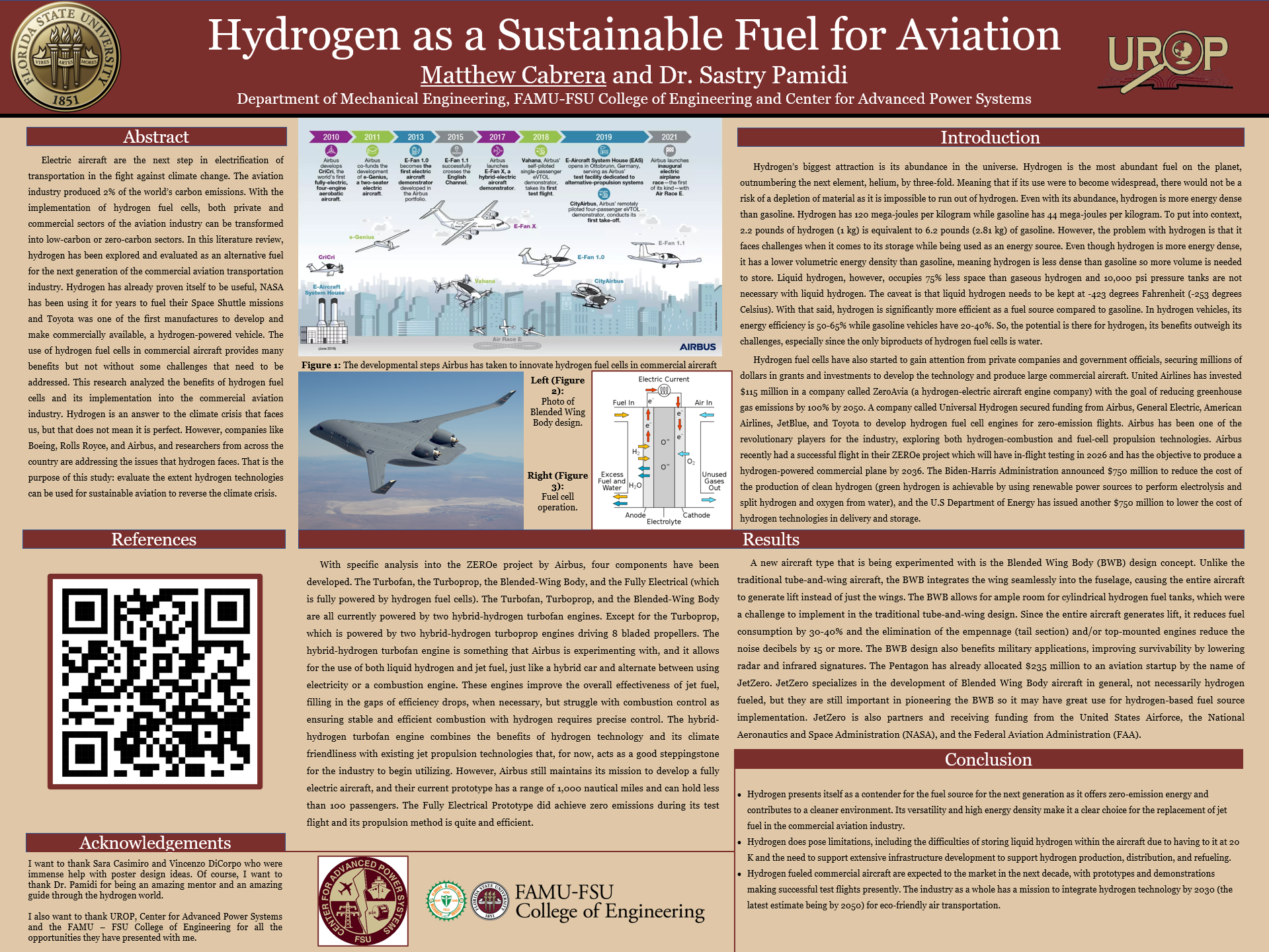Research Symposium
24th annual Undergraduate Research Symposium, April 3, 2024
Matthew Cabrera Poster Session 3: 1:30 pm - 2:30 pm /429

BIO
Hello! I am a first-year student at Florida State University studying Mechanical Engineering with the intention of attending graduate school for a Master's Degree in Aerospace Engineering. During my undergraduate career, I hope to complete two minors in Physics and Astrophysics in the Fall of 2024 and potentially obtaining a double major in an undetermined subject. I was born in Hialeah, FL but my parents moved to Ocala, FL when I was two years old, so I consider Ocala my home. I am an only child and the first generation in the United States, my parents were lucky enough to win the visa lottery and immigrated to the United States in 1998 from Cuba (Yes, I speak Spanish). During high school, I was fortunate enough to be a part of the International Baccalaureate (IB) program. Thanks to that IB background, I am fascinated with the multitude of research opportunities available at FSU including the Undergraduate Research Opportunites Program (UROP). Participating in UROP has allowed me to build the necessary foundations to continue my research throughout my undergraduate years, which to me, is essential for the diversification and identity of what I wish to do with my undergraduate career.
Hydrogen as a Sustainable Fuel for Aviation
Authors: Matthew Cabrera, Dr. Sastry PamidiStudent Major: Mechanical Engineering
Mentor: Dr. Sastry Pamidi
Mentor's Department: Electrical and Computer Engineering Mentor's College: FAMU-FSU College of Engineering Co-Presenters:
Abstract
Electric aircraft are the next step in electrification of transportation in the fight against climate change. The aviation industry produced 2% of the world’s carbon emissions. With the implementation of hydrogen fuel cells, both private and commercial sectors of the aviation industry can be transformed into low-carbon or zero-carbon sectors. In this literature review, hydrogen has been explored and evaluated as an alternative fuel for the next generation of the commercial aviation transportation industry. Hydrogen has already proven itself to be useful, NASA has been using it for years to fuel their Space Shuttle missions and Toyota was one of the first manufactures to develop and make commercially available, a hydrogen-powered vehicle. The use of hydrogen fuel cells in commercial aircraft provides many benefits but not without some challenges that need to be addressed. This research analyzed the benefits of hydrogen fuel cells and its implementation into the commercial aviation industry. Hydrogen is an answer to the climate crisis that faces us, but that does not mean it is perfect. However, companies like Boeing, Rolls Royce, and Airbus, and researchers from across the country are addressing the issues that hydrogen faces. That is the purpose of this study: evaluate the extent hydrogen technologies can be used for sustainable aviation to reverse the climate crisis.
Keywords: hydrogen, innovation, aviation, commercial, transportation

